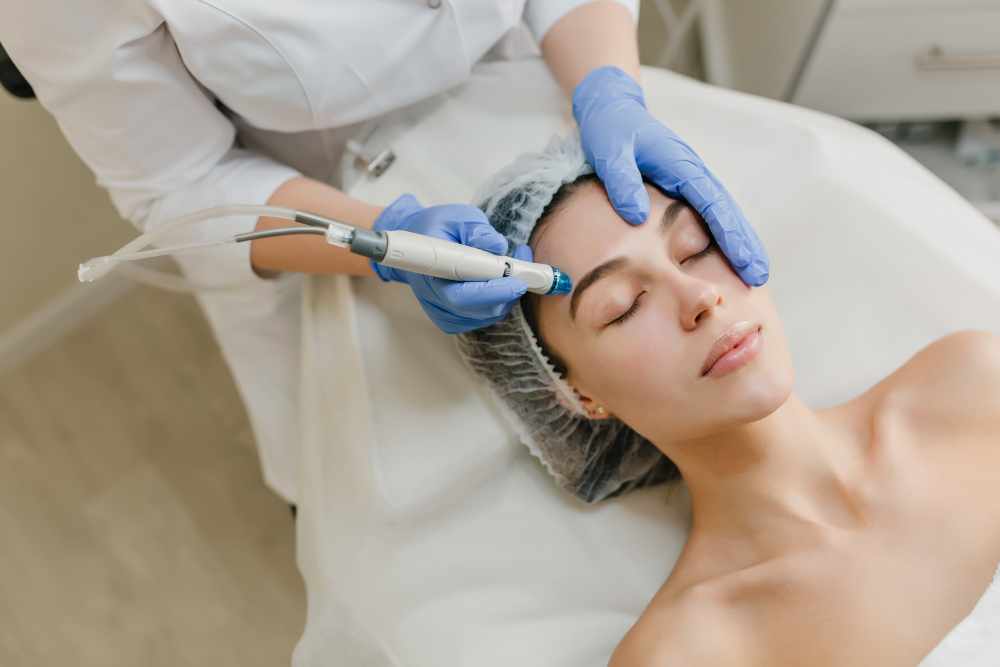
Our skin is our body's largest organ, a remarkable protective barrier that shields us from the outside world while also reflecting our internal health. However, it's constantly exposed to environmental aggressors, internal fluctuations, and the natural aging process, making it susceptible to a range of concerns. Understanding common skin problems and knowing when to seek professional guidance is crucial for maintaining a healthy, radiant complexion.
Common Skin Concerns and What They Mean
From the occasional breakout to persistent dryness, here's a look at some frequent skin issues:
Acne: Not just a teenage problem, acne can affect adults due to hormonal changes, stress, diet, or certain medications. It manifests as blackheads, whiteheads, pimples, cysts, or nodules, often on the face, chest, and back.
Dry Skin (Xerosis): Characterized by flakiness, tightness, itching, and sometimes cracking. It can be caused by harsh soaps, hot showers, cold weather, low humidity, or underlying health conditions.
Eczema (Atopic Dermatitis): A chronic inflammatory skin condition causing red, itchy, dry patches, often accompanied by scaling and thickening of the skin. Triggers can include allergens, irritants, and stress.
Psoriasis: An autoimmune condition that accelerates skin cell turnover, leading to thick, red patches covered with silvery scales. It can appear anywhere on the body, including the scalp and nails.
Hyperpigmentation: Darker patches of skin caused by an overproduction of melanin. This includes sunspots, melasma (often triggered by hormones), and post-inflammatory hyperpigmentation (dark spots left after acne or injury).
Rosacea: A chronic skin condition primarily affecting the face, causing redness, visible blood vessels, bumps, and sometimes eye irritation. Triggers include spicy foods, alcohol, hot beverages, and sun exposure.
Aging Skin Concerns: Fine lines, wrinkles, loss of elasticity, and uneven skin tone are natural parts of aging, often exacerbated by sun exposure, smoking, and lifestyle factors.
Foundations of Healthy Skin Care
While specific concerns require targeted treatments, a solid daily skincare routine forms the bedrock of healthy skin:
Gentle Cleansing: Wash your face twice daily with a mild, pH-balanced cleanser to remove dirt, oil, and makeup without stripping natural moisture.
Moisturize Regularly: Apply a suitable moisturizer after cleansing to hydrate the skin and reinforce its protective barrier. Choose a formula appropriate for your skin type (e.g., lightweight for oily skin, richer for dry skin).
Sun Protection is Paramount: This is arguably the most crucial step. Use a broad-spectrum sunscreen with at least SPF 30 every single day, even on cloudy days, and reapply throughout the day. UV radiation is the leading cause of premature aging and skin cancer.
Healthy Lifestyle: A balanced diet rich in antioxidants, adequate hydration, sufficient sleep, and stress management all contribute significantly to skin health from within.
When to Consult a Skin Specialist Dwarka
While over-the-counter products and good habits can address minor issues, certain skin concerns warrant professional attention. Don't hesitate to consult a dermatologist or skin specialist Dwarka if you experience:
Persistent or worsening acne: When topical treatments aren't enough.
Chronic skin conditions: Like eczema, psoriasis, or rosacea that don't respond to home care.
New or changing moles: Any changes in size, shape, color, or symmetry of moles should be checked immediately for skin cancer screening.
Unexplained rashes or itching: Especially if accompanied by other symptoms.
Severe dryness or sensitivity: That impacts your quality of life.
Concerns about aging: For professional advice on anti-aging treatments and procedures.
Hair loss or nail disorders: Dermatologists also specialize in these areas.
A qualified skin specialist in Dwarka can accurately diagnose your condition, prescribe effective treatments (topical, oral, or procedural), and develop a personalized skincare regimen tailored to your unique needs. They can offer solutions ranging from prescription medications and advanced laser therapies to chemical peels and injectables, helping you achieve and maintain your best possible skin health. Investing in professional dermatological care is investing in your long-term skin health and confidence.






Write a comment ...